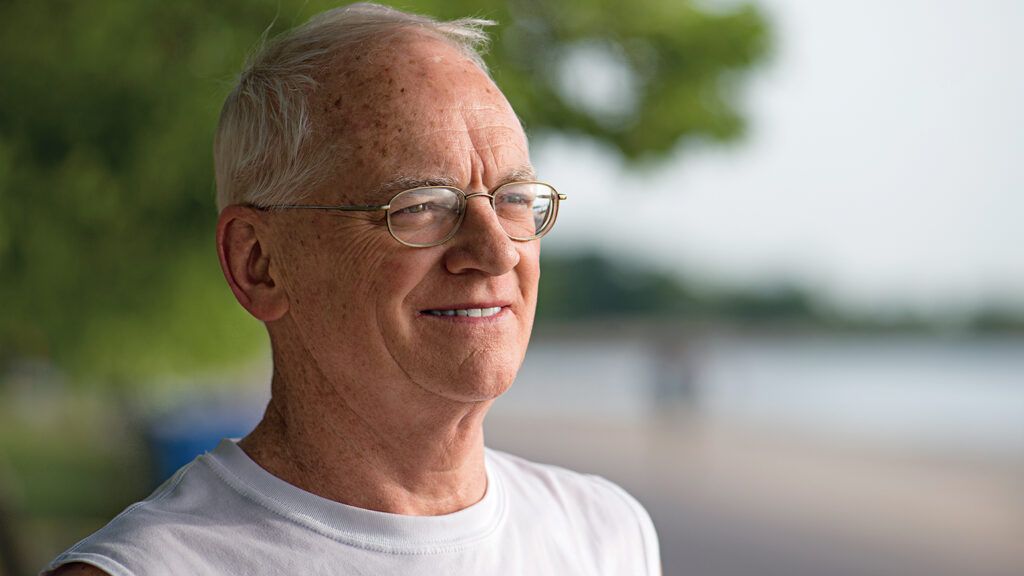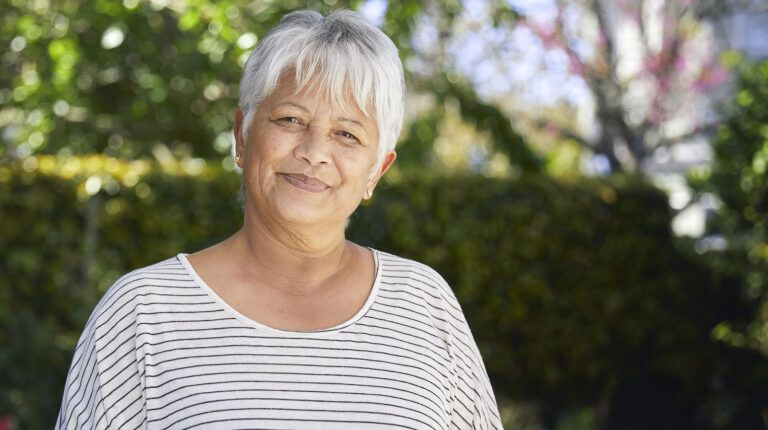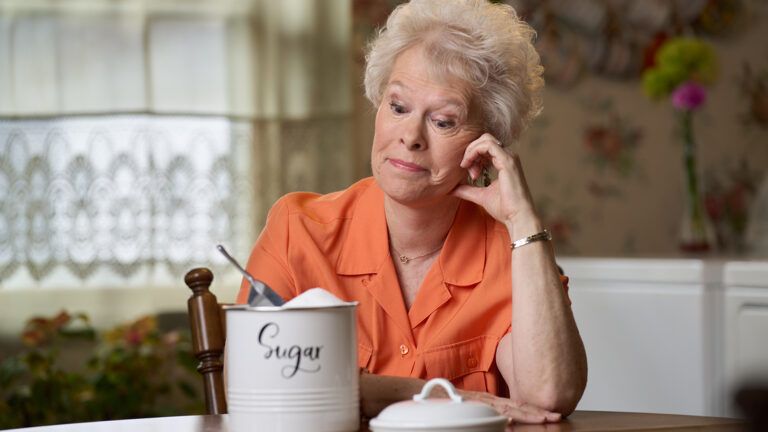Three hundred pairs of eyes watched me expectantly. I stood in the sanctuary next to the piano, trying not to hyperventilate. I was about to lead the congregation in singing a Psalm.
No one was forcing me to do this. And was it really such a big deal, singing in front of people I’d gone to church with for years?
For me it was. I’d been terrified of singing in public for as long as I could remember. I was fine mumbling hymns in the anonymity of the pews or hiding in the adult choir. But singing solo in front of a large group seemed like asking for humiliation.
So why had I volunteered to lead the Psalm this Sunday morning? Why had I spent months working with a voice coach to prepare for just this moment?
Well, I’d done a lot of things recently that once intimidated me. Like learning to swim when I was 58 and completing multiple triathlons. I was also writing my first book.
There was a reason I kept facing this fear. His name was Jack. As I stood before the congregation, he was at home with his mom and dad. He was almost two years old. My grandson. And he’d inspired a big change in my life.
I was not raised to be a risk-taker. I grew up in a traditional family. Church every Sunday. Best behavior at the dinner table. Don’t step out of line. Don’t be different.
That was my dad’s approach to life. He was just six years old when his own father died. The loss deprived him of the confidence a father can help instill in his children. After high school, he attended seminary for several years. Then he got a job selling appliances on commission at a Sears store. He kept that job for 22 years.
He raised his kids to be just as cautious. I was afraid of deep water ever since almost drowning as a kid. So was Dad—he wouldn’t even wade in the shallow part of a lake. He never made me take swimming lessons. When I had to swim two lengths of a pool to pass P.E. in high school, I somehow managed to finish and practically threw up. I didn’t swim very much after that.
I was drafted in 1970, in the middle of my second year of law school, during the Vietnam War. At first I broached the idea of filing for conscientious objector status. I couldn’t square killing people with everything I’d read in the Gospels.
Mom and Dad were aghast. They argued with me. Realizing that someone else might be drafted in my place if I stayed out of the war, I agreed to enlist. I ended up becoming a military policeman, stationed at two nuclear missile bases near home. When I got out of the Army, I went back to finish law school and met a woman named Karin. We’d been set up by a friend—I didn’t do a lot of dating. Karin and I married, and I passed the bar. Before I knew it, I had a job with a small law firm.
In some ways, my life was just as conventional as my dad’s. I stuck with the same profession, even though my field of law sometimes felt like a grind. I never did learn how to swim, despite hours spent rooting for my children’s swim teams. I rarely got in the water myself. No risk-taker, me.
And yet there was another side to my personality, one I didn’t recognize at first. I certainly didn’t marry a conventional wife. Karin was a social worker. Before we got married, she’d lived on a kibbutz in Israel, even though she’s Catholic like me. She wanted to learn about other social systems. She and I vowed to raise our kids to ask questions and explore new things.
Not a risk-taker? I take that back. There was the time, early in my law career, when my boss, a tax attorney, asked me to fudge some numbers on a form to save one of his clients money. I refused and was fired. Karin was pregnant with our third child. I could have fudged the numbers and saved my job. But I didn’t. Instead I started my own law practice in 1978, where I still work today.
So I did take risks, at least when it mattered. But why? It took me until my mid-fifties to understand. That’s when one day, out of the blue, our younger daughter, Meghan, turned to me in a bookstore and said, “Hey, Dad, we should do a triathlon together.”
What?
We were in Portland, Oregon, where Meghan was spending a post-college year volunteering with a Jesuit social service organization (something I would have shied away from after college). She’d happened to pick up a book about triathlons. My children had always been athletic, and we loved hanging out together. Maybe that’s why she suggested it.
To my own astonishment, I heard myself say, “Sure.”
But I couldn’t swim! And yet, for some reason, the idea appealed to me. Some part of me suddenly wanted to push against that lifelong fear of water, maybe because I didn’t want to let my children down, and that mattered. I wanted to show them that they should identify their fears and challenge them.
I forced myself into a pool to practice. By the day of the race, I was still a terrible swimmer.
The 500-yard swim was in a deep harbor with high waves. My wife was there. Bridget, our older daughter, and her husband, Tim, were also competing with me. At the signal to start, I plunged into the cold water. It wasn’t pretty, but I made it. After that, the bike and the run were hard but at least not life-threatening. When I crossed the finish line, with my family hugging me and telling me how proud they were, pure joy surged through me.
What else could I do that I’d been putting off for years? I’d always wanted to write a book, about a guy I’d met in the Army, who became a close friend of our family even though he suffered mental illness after being discharged and spent time living on the streets. I was intimidated at first; it was a form of writing I had never done before. But I finished, and the book, a faith-based memoir entitled God Called Collect from Cleveland, will be published this year.
And then Jack was born. He was Bridget’s boy, our first grandchild. I thought he was perfect.
But Jack struggled for life when he was just one year old. Doctors said a virus had destroyed his liver. He needed a transplant. Bridget and Tim couldn’t find a donor. Tim offered to donate part of his own liver—a risky surgery for both him and Jack.
I spent a lot of time praying for Jack. One afternoon, as I was holding him, staring into his tiny face and imagining the desperate struggle for survival going on inside him, it hit me why it was so important for me to try new things and push my limits. It wasn’t for fitness or accomplishment or even to distinguish myself from my father.
It was because time was precious. For Jack, each precarious second was obviously precious. I wasn’t threatened by a mortal illness, but my life was no less finite than his. Just as for any of God’s children, my time on earth was limited. I wanted to make the most of the time I had left.
“I’m going to sing for you, Jack,” I suddenly said to him one day. “But that’s nothing compared to what you’re facing. If you can be brave, so can I.”
Before I could talk myself out of it, I volunteered to be a cantor at our church—the layperson who leads the congregation in singing. I signed up with a voice coach, and I learned how to read music.
And now here I was, in front of the congregation. Jack couldn’t be there. He wasn’t in any shape to make the drive to church. But I imagined him in the pews, smiling his can-do smile.
The music started. I opened my mouth to sing and…I didn’t recognize the music! It wasn’t the Psalm I’d been practicing so diligently.
“Um,” I stammered. “Please excuse me. We’re having technical difficulties.”
I leaned over to the piano player. “What tune are you playing? That’s not the one I memorized.”
We compared notes. I’d gotten the Psalm number mixed up with the page number in the music book! I’d memorized the wrong Psalm.
“I don’t know the words to this one,” I whispered.
“Well, it’s the one in the hymn manual,” said the pianist. “We have to play it. Can you wing it?”
Before I could object, the pianist resumed. I had no choice but to make up the words. I cobbled together what I remembered from other Psalms. No one seemed to care. They sang along as if they hadn’t even noticed. Karin, of course, noticed. But it made her smile.
When I finished, all I felt at first was relief. But then came that surge of joy I’d experienced the day of the first triathlon.
A few months after I sang in church, Jack and Tim underwent a successful liver transplant. Today Jack is a growing, healthy eight-year-old boy.
I don’t set as many challenges for myself as I used to. Life itself is challenging enough. Last year, when one of my younger brothers died, I found myself thinking a lot about the words in Paul’s Second Letter to Timothy: “I have fought the good fight. I have run the race. I have kept the faith.”
Though I still do triathlons, my most important race as a 70-year-old these days is staying healthy for my family, my friends and my clients. Karin and I spend a lot of time babysitting our five grandchildren, including Jack. I want to be there for others as long as I can.
The playwright George Bernard Shaw once said, “I want to be thoroughly used up when I die.”
God gave me this life. I intend to use it to the fullest.
For more inspiring stories, subscribe to Guideposts magazine.






